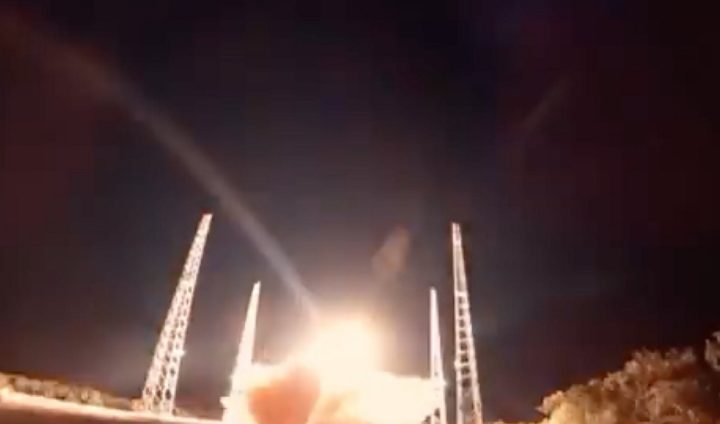On Saturday, Turkey announced the successful testing of its inaugural domestically produced probe rocket, marking a significant stride in its ambitious space endeavours. The rocket, developed by leading defence and technology company Roketsan, underwent a test launch from Iğneada in the northwestern Kırklareli province, as stated by Turkey’s top defence authority on the social media platform X, formerly known as Twitter.
The launch, coupled with the advanced engineering behind the probe rocket, underscores Turkey’s commitment to space exploration, according to the Presidency of Defense Industries (SSB).
The SSB highlighted, “Our probe rocket, crafted using advanced engineering technologies as part of our nation’s pursuit of space exploration, was successfully launched from Iğneada.”
This launch aligns with President Recep Tayyip Erdoğan’s ambitious 10-year space roadmap unveiled in February 2021, encompassing moon missions, Turkish astronaut expeditions, and the development of globally competitive satellite systems.
In April of this year, Erdoğan introduced the first Turkish space travellers, slated for a 14-day research mission to the International Space Station (ISS) in late 2023—a historic first for Turkey. The government partnered with U.S. space infrastructure developer Axiom Space for astronaut training and flight services, requiring candidates to complete Axiom’s extensive training curriculum for acclimatising to space life.
The decade-long program is integral to Erdoğan’s vision of positioning Turkey in an expanded regional and global role, including lunar missions. The initial phase of the lunar mission involves international collaboration, while Turkish rockets will be deployed in the second phase.
As part of this initiative, Turkey plans to collaborate with other nations in constructing a spaceport and creating a global satellite technology brand. The Turkish Space Agency (TUA) was established in 2018 to join the ranks of countries with space programs.
Erdoğan has engaged in discussions with SpaceX CEO Elon Musk, exploring cooperation on space technologies with Turkish enterprises.
Prior to the Saturday launch, Turkey issued an international maritime safety advisory (Navtex) covering a region spanning 850 kilometers between the provinces of Edirne and Giresun on the Black Sea.
Industry and Technology Minister Mehmet Fatih Kacır characterised the achievement as “the news of the century’s seal for Turkey in space technologies,” anticipating further positive developments.
SSB President Haluk Görgün regarded the test as a crucial milestone in domestic rocket technology, predicting a significant boost in Turkey’s space endeavours.
Turkey has been diligently working on an unmanned spacecraft for its lunar mission, with plans for completion by the end of 2023. The spacecraft’s engine is being produced within the country. As part of the space program, Turkey successfully conducted flight tests of a hybrid probe rocket system intended for the unmanned spacecraft.
Turkey’s lunar mission will unfold in two stages. The first stage involves an orbital launch in collaboration with international partners, followed by utilising the domestically developed hybrid engine to propel the Turkish spacecraft to the moon’s surface. In the second stage scheduled for 2028, Turkey will launch its own rockets into space similar to the probe’s launch.
Presently, Turkey has nine operational satellites in space, primarily communication satellites. This number is anticipated to soon reach 10, as Turkey prepares to launch its domestically developed Türksat 6A satellite. This achievement will position Turkey among the group of 10 countries capable of independently producing satellites.
Source: Daily Sabah







